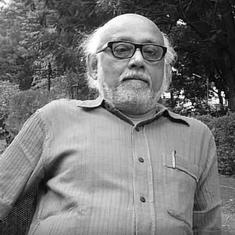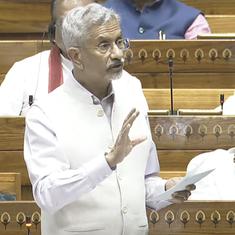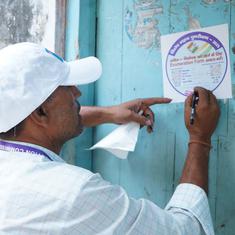UP government moves SC against HC order to remove posters with CAA protestors’ names and addresses
The hoardings, ordered by Chief Minister Adityanath, had been set up to identify those who allegedly committed violence during demonstrations against the Act.

The Uttar Pradesh government on Wednesday moved the Supreme Court against the Allahabad High Court order asking it to remove all posters with names, photographs and addresses of anti-Citizenship Amendment Act protesters that have been put up in Lucknow, PTI reported.
The appeal will be heard on Thursday by a vacation bench, Advocate General Raghvendra Singh told the news agency.
The hoardings, ordered by Chief Minister Adityanath, had been set up at several locations in Lucknow last week to identify those who allegedly committed violence during demonstrations against the Act. The hoardings had photos, names and addresses of 53 people, including activist Sadaf Jafar, former bureaucrat SR Darapuri, Shia cleric Maulana Saif Abbas, human rights defender Mohammed Shoaib and theatre personality Deepak Kabir.
The High Court on Monday said the hoardings constituted an “unwarranted interference in privacy” and were a violation of Article 21 of the Constitution. On the state government’s claim that the High Court lacked territorial jurisdiction as the matter arose in Lucknow, the bench said the reason for its involvement was not about “personal injury” to those named in the hoardings, but “the injury caused to the precious constitutional value and its shameless depiction by the administration”.
The court directed the Lucknow district magistrate and police commissioner to submit a report on the removal of posters by March 16. The court had taken suo motu cognisance of the hoardings.
The bench, comprising Chief Justice Govind Mathur and Justice Ramesh Sinha, had told the advocate general that a proper hearing should have been held instead of naming people and putting up banners, which was “unacceptable”. The court had also said the state’s action was “highly unjust” and an “absolute encroachment” on personal liberty of the people whose names and photos were displayed.
The Citizenship Amendment Act provides citizenship to refugees from six minority communities in Pakistan, Afghanistan and Bangladesh, who have entered India on or before December 31, 2014. The Act, passed on December 11, has been criticised for excluding Muslims. In December, at least 28 people died in protests against the Act, 19 of them in Uttar Pradesh itself. Most of those who died had suffered bullet-inflicted wounds.









